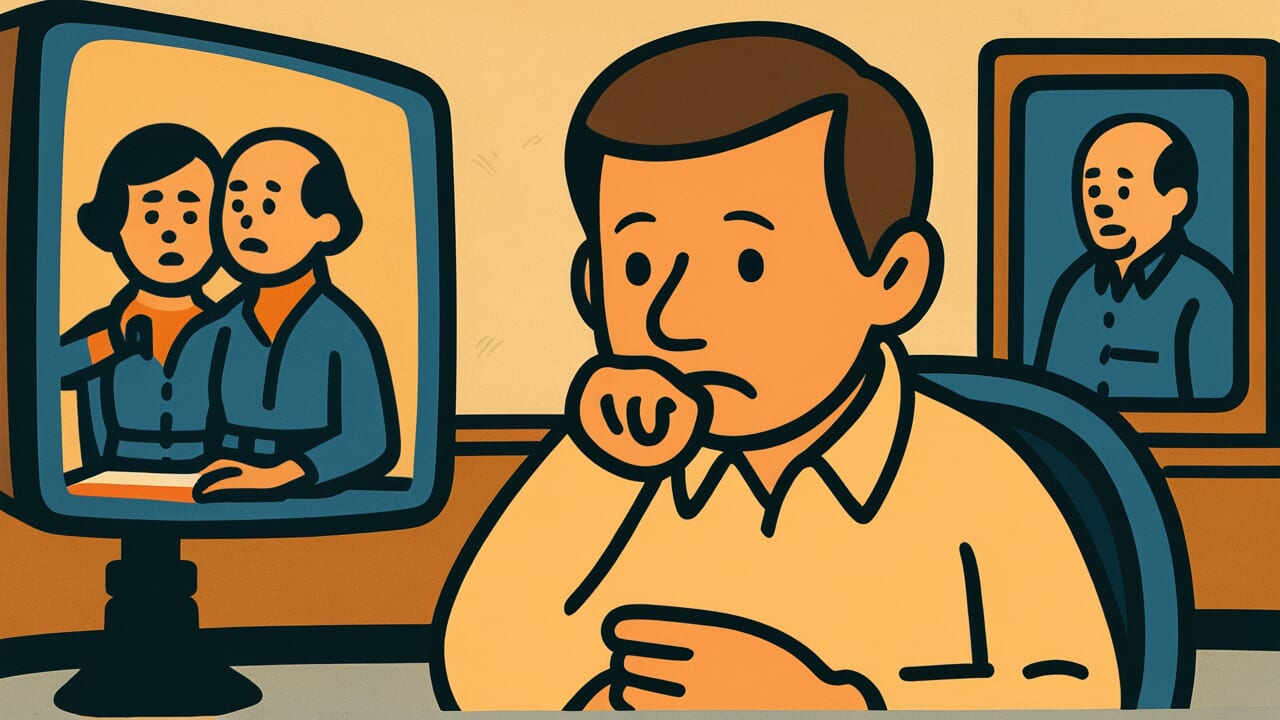How to Read “At fifty, knowing the wrongs of forty-nine years”
Gojū ni shite shijūkyū-nen no hi wo shiru
Meaning of “At fifty, knowing the wrongs of forty-nine years”
This proverb means that only when you reach fifty years old do you finally realize the mistakes and errors you made during the previous forty-nine years.
When we’re young, we believe our actions and judgments are correct without question. But after many years of experience and understanding life’s depths, we finally see how immature and wrong our past selves were.
This proverb teaches us that human growth takes time. It also shows how difficult true self-awareness really is.
People use this saying when reflecting on their past as they age. It fits when you realize how immature you were in your youth.
It’s also used to explain the importance of life experience and the value of humility. Even today, it conveys the universal truth that self-growth requires long time and much experience.
Origin and Etymology
This proverb likely comes from Chinese classical thought, especially Confucianism. The Analects, which records Confucius’s words, describes growth at each life stage.
It includes the famous line “At fifty, knowing the mandate of heaven.” “At fifty, knowing the wrongs of forty-nine years” follows this philosophical tradition but focuses more on human imperfection.
The age of fifty has long been seen as life’s turning point. By this age, you have enough experience to look back on your life. You also still have time to think about your future.
Using the specific number forty-nine emphasizes an important fact. From birth until now, you’ve been making mistakes throughout almost your entire life.
What’s interesting is that this proverb emphasizes “realizing” your mistakes. It’s not about making errors themselves.
Instead, it’s about how hard it is to notice them and how long it takes. Humans find it extremely difficult to admit their own mistakes.
True self-awareness requires many years. This shows a deep understanding of human nature.
Usage Examples
- Now past fifty, I truly feel what “At fifty, knowing the wrongs of forty-nine years” means
- When I remember my arrogance in youth, the words “At fifty, knowing the wrongs of forty-nine years” hit home
Universal Wisdom
The deepest truth this proverb tells us is this: humans find it extremely difficult to see themselves objectively. We all live believing we’re doing our best in each moment.
But in reality, our vision is narrow. Our experience is shallow. We’re swayed by emotions and make many wrong judgments.
Why has this proverb been passed down for so long? Because it points to a fundamental blind spot in human nature.
The certainty of youth, the arrogance from lack of experience, and above all, the psychological desire to believe “I am right now.” These are human traits that never change, no matter the era.
The deeper insight is that this proverb recognizes the value of “realizing.” Being able to notice past mistakes at fifty is actually proof of great growth.
Many people finish their lives without ever realizing, or without trying to realize. Admitting your own errors brings pain. It hurts your pride and shatters your self-image.
Yet being able to realize means you’ve gained true humility and maturity.
This proverb doesn’t blame humans for being imperfect. Rather, it teaches the nobility of accepting imperfection and continuing to learn.
When AI Hears This
The human brain always receives information mixed with noise. When you hear someone’s words, their facial expression, your emotions, the atmosphere, and past memories all mix in.
In information theory, we use “error correction codes” to extract correct information from noisy signals. This means sending the same information repeatedly in different forms so you can find and fix mistakes later.
This proverb shows that the human recognition system has surprisingly low correction efficiency. Communication technology can detect errors in milliseconds. But humans need fifty years to detect forty-nine years of errors.
This means living “in error” for 98 percent of the time. Why is this so inefficient? The answer is that the human brain is designed to prioritize real-time processing.
To respond instantly to immediate danger, there’s no time for careful verification.
What’s more interesting is that detecting errors requires “metacognition,” a higher-level process. The ability to observe your own thinking from outside.
This only works after accumulating vast amounts of life experience data. In other words, the human learning system keeps collecting large amounts of redundant data.
Then, when it passes a certain threshold, patterns suddenly become visible.
Lessons for Today
This proverb teaches us modern people the importance of not demanding perfection. In today’s age, where we see only others’ successes on social media, we feel constant pressure to make “correct choices.”
But this proverb speaks gently to us. “Your judgments today will probably look immature when you look back. But that’s okay.”
What matters isn’t avoiding action out of fear of mistakes. It’s living fully in the present so your future self can look back and learn.
And when you grow older, it’s having the humility to laugh and say, “I was young back then.”
This proverb also helps with understanding between generations. Before deciding a young person’s judgment is “wrong,” you can remember, “I couldn’t see clearly at that age either.”
Young people, too, can think before dismissing advice as “outdated.” They might consider, “Maybe this person is speaking from their own experience.”
Life is a long journey of learning. Today’s failures are the seeds of tomorrow’s wisdom.



Comments